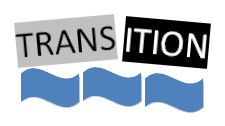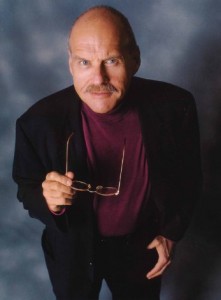 Have you ever read a book where the scene is progressing nicely, things are happening, people are talking and then … you’re somewhere else. From one paragraph to the next, you’ve gone from a moonlit beach to a crowded avenue. You were just starting to understand the relationship between John and Marsha and now suddenly you’re introduced to Tony.
Have you ever read a book where the scene is progressing nicely, things are happening, people are talking and then … you’re somewhere else. From one paragraph to the next, you’ve gone from a moonlit beach to a crowded avenue. You were just starting to understand the relationship between John and Marsha and now suddenly you’re introduced to Tony.
“Marsha, hello,” John called brightly. He was obviously pleased to see her. His eyes shone at her with reflected moonlight.
“Hello, John.” Her voice was low, cautious. Her eyes darted nervously about the deserted beach, and she caught her lower lip in her teeth.
“How are you?” he asked as he stopped in front of her.
Tony cursed the Black Friday crowds while he shouldered his way down the sidewalk. He hated shopping.
Does this make you do a double-take? Do you have to go back and re-read just to make sure you didn’t miss something? In recent months I’ve read more than a few books that had trouble with transitions. Now I’ve yammered on before about how, when we write, we need to make sure the reader is flowing along with us effortlessly. Yes, there may be drama in the story and yes, there may be tension, but there shouldn’t be any of that in the reader’s efforts to follow the story. The reader may need to work at piecing out the story line in a thriller, may need to tease out the truth from the lies and misdirections in a mystery, but they should not have to work at following the writing. In my opinion, if the reader does have to work at that, we haven’t done our job well at all. Continue reading “Stop the Chop: Writing Smooth Transitions”
Like this:
Like Loading...
 Disparity — defined as the lack of agreement between internal perceptions with external behavior. So what does that have to do with writing? Simply put, what we think about our writing is always different from the public’s perception. There’s a huge gap in what we see in our writing and what others see in it.
Disparity — defined as the lack of agreement between internal perceptions with external behavior. So what does that have to do with writing? Simply put, what we think about our writing is always different from the public’s perception. There’s a huge gap in what we see in our writing and what others see in it.
 Pacing in writing is essential. It can make a story or break it. Good pacing can tune a good story into a masterpiece, or bad pacing can reduce it to caterwauls.
Pacing in writing is essential. It can make a story or break it. Good pacing can tune a good story into a masterpiece, or bad pacing can reduce it to caterwauls. Have you ever read a book where the scene is progressing nicely, things are happening, people are talking and then … you’re somewhere else. From one paragraph to the next, you’ve gone from a moonlit beach to a crowded avenue. You were just starting to understand the relationship between John and Marsha and now suddenly you’re introduced to Tony.
Have you ever read a book where the scene is progressing nicely, things are happening, people are talking and then … you’re somewhere else. From one paragraph to the next, you’ve gone from a moonlit beach to a crowded avenue. You were just starting to understand the relationship between John and Marsha and now suddenly you’re introduced to Tony. It’s a real rush to pass on a tip from Lawrence Block because he just might be the most major monster in crime fiction. Consider: he’s author of over forty novels (and that’s just under his own name — not counting another 50 or so under various noms du travail). But it goes way beyond that. He’s one of those writers that everybody in his field has read, and most other writers in that field have been influenced by. His Matt Scudder series is an uber-classic, a modern version of Chandler or Hammett. But with a more human character arc, readers watched Scudder come to grips with his alcoholism. Scudder alone would enshrine Mr. Block in the Crime Hall of Fame…
It’s a real rush to pass on a tip from Lawrence Block because he just might be the most major monster in crime fiction. Consider: he’s author of over forty novels (and that’s just under his own name — not counting another 50 or so under various noms du travail). But it goes way beyond that. He’s one of those writers that everybody in his field has read, and most other writers in that field have been influenced by. His Matt Scudder series is an uber-classic, a modern version of Chandler or Hammett. But with a more human character arc, readers watched Scudder come to grips with his alcoholism. Scudder alone would enshrine Mr. Block in the Crime Hall of Fame…